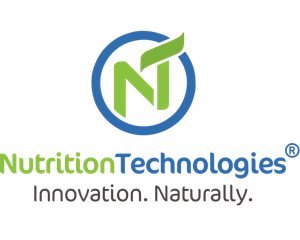
GPCA featured Malaysia-based foodtech Nutrition Technologies in the 2021 report, Emerging Tech Trends in Southeast Asia.
Founded in 2015, Nutrition Technologies’ mission is to introduce insects into the global food supply chain by harnessing their potential as sustainable commodity ingredients for animal and plant nutrition. The firm manufactures protein, oil and organic fertilizer from black soldier fly (BSF) larvae to help feed the growing aquaculture, agriculture and animal feed industries around the world.
Funding
Nutrition Technologies raised a USD8.5m Series A from Openspace Ventures, SEEDS Capital (the investment arm of Enterprise Singapore) and angel investors in July 2019, followed by a USD5m pre-Series B led by Hera Capital in March 2021, with participation from existing investors.
The Opportunity for Insect Protein in Southeast Asia
Nutrition Technologies is the lowest-cost producer of insect protein, oils and organic fertilizer globally due to location (situated in Southeast Asia, which is tropical and native to the BSF), low operational expense due to labor costs, and proximity to multiple feed sources. The company has great product-market-fit, as insects are a natural source of food for aquaculture, poultry and swine, resulting in an easy transition from one ingredient (fishmeal, soymeal) to insect protein. This has the potential to drive huge demand for insect protein once Nutrition Technologies starts producing at scale. The company maintains a strong focus on innovating the rearing of BSFs instead of focusing on innovating the manufacturing process. This has led to multiple breakthroughs in operational efficiency, which adds to the company’s already low-cost base.
Insects to Feed the World
Originally formed as a solution to relieve the pressure on ocean fish stocks trawled for fishmeal, founders Nick Piggott and Thomas Berry conceptualized Nutrition Technologies in 2013 after reading the Food and Agriculture Organization (FAO)’s “Insects to feed the world” white paper. United by a shared love of ocean health and troubled by the prospect of empty oceans caused by over-fishing, they decided to establish Nutrition Technologies in order to provide an insect protein solution to address the world’s growing animal feed demand.
Taking the idea to Vietnam’s Mekong Delta in 2015, the founders established a partnership with the National University of Agriculture in Ho Chi Minh city, where they built their first R&D site. Using grant funds from the UK and Australian governments, the team learned how to best breed Black Soldier Fly Larvae and manufacture insect protein in a tropical environment.
Following its seed investment round, Nutrition Technologies established a commercial pilot plant in late 2017 in Johor, Malaysia. The team expanded to over 20 people and focused on the regular production of insect proteins, oils and frass (waste from insects) to sell both to the local market and export across the region for trial purposes. During this time, the team began producing and integrating its own cutting-edge bacterial inoculants, designed to enhance the insect larvae bioconversion process, which had tremendous results on product yields and quality.
Scaling the Tech: Industrial Insect Protein Production
Following Series A funding in mid-2019, Nutrition Technologies built its first industrial size insect plant in Johor Bahru, Malaysia. With a team of 150 people, comprising insect experts, engineers and manufacturing professionals, Nutrition Technologies has now become the leading player in Southeast Asia, and one of the few players globally to build an industrial-size insect protein production facility.
Nutrition Technologies currently stands apart from its competitors due to its research and understanding of the relationship black soldier fly larvae have with microorganisms. Alongside its industrial plant, Nutrition Technologies now also has its own standalone biotech laboratory and has created a library of different inoculants with a blend of different microorganisms that help breakdown the nutrients in food waste and speed up the larvae development process. Like the insects themselves, these inoculants thrive in tropical conditions and allow for the insect larvae to now be reared and processed in less than a week.
Over the next couple of years, Nutrition Technologies plans to scale up production further by building its next generation of plants in Malaysia and Indonesia, where they have identified very large supplies of key organic waste streams to be used as raw materials. The next generation of plants will integrate some of its latest biotechnology research, and put vast numbers of different microbial strains to work alongside its larvae in order to drive a truly circular agricultural economy.